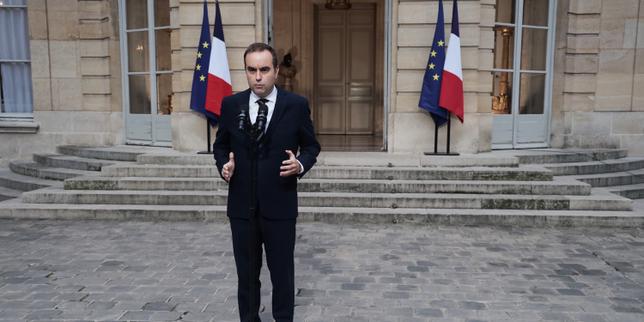Sébastien Lecornu Renounces Article 49.3 Amidst Budget 2026 Negotiations
Prime Minister Lecornu's decision to renounce article 49.3 aims to foster collaboration in the Budget 2026 negotiations, yet tensions with right-wing parties remain high.
- • Prime Minister Lecornu renounces article 49.3 to enhance parliamentary debate.
- • Pressure from right-wing parties over budget negotiations intensifies.
- • Potential finance bill measures have emerged amid dissatisfaction from Les Républicains.
- • Lecornu expresses readiness to improve the pension system without reversing reforms.
Key details
On October 3, 2025, Prime Minister Sébastien Lecornu announced a significant shift in the government's approach to the 2026 budget by renouncing the use of article 49.3 of the French Constitution, which permits the government to bypass a parliamentary vote on legislation. Speaking from Matignon, Lecornu highlighted that this decision aims to promote more open legislative discussions in a divided parliament. "It is crucial for deputies to have both power and responsibility in decision-making processes, especially during this parliamentary era, the most engaged in the history of the Fifth Republic," he stated.
Lecornu's commitment to a more collaborative budgetary process comes amid increasing pressure from various political factions. Right-wing parties, particularly the Les Républicains (LR), have signaled dissent regarding Lecornu's transparency and budgetary proposals. Bruno Retailleau, the president of LR, warned that participation from right-wing factions in the government was "not at all guaranteed," reflecting dissatisfaction over recent negotiations concerning tax policy and social issues.
As discussions progress, potential measures for the upcoming finance bill were leaked, including tax relief and income tax cuts aimed at couples with modest earnings. However, Retailleau expressed frustration after Lecornu confirmed that certain expected proposals would not be implemented. This tension underscores the precarious position Lecornu occupies while trying to strike a balance between left and right when it comes to crucial financial reforms.
Lecornu has also indicated a willingness to reform the pension system without reversing existing changes, even as opposition leaders like Boris Vallaud of the Socialist Party have viewed the government's approach with skepticism. Vallaud criticized the administration's strategy, suggesting the government's control over parliamentary procedures may persist regardless of Lecornu's promises.
As the clock ticks towards a necessary budget approval by December 31, the dynamics of collaboration and tension within legislative discussions will be critical to watch in the coming weeks.
This article was translated and synthesized from French sources, providing English-speaking readers with local perspectives.
Source articles (5)
Source comparison
Latest news
Middle East Conflict Sparks Surge in French Fuel Prices Amid Supply Concerns
Macron Announces Major Shift in France's Nuclear Policy with Increased Arsenal and European Integration
French Government Prioritizes Safety of Nationals Stranded Amid Middle East Conflict
French Prisons Reach Record Overcrowding with 86,645 Inmates as of February 2026
Pau's Local Election Campaign Gathers Momentum Amid Broader Political and Economic Concerns
French Companies and Regions Accelerate Efforts in Nature-Related Economic Transition
The top news stories in France
Delivered straight to your inbox each morning.



